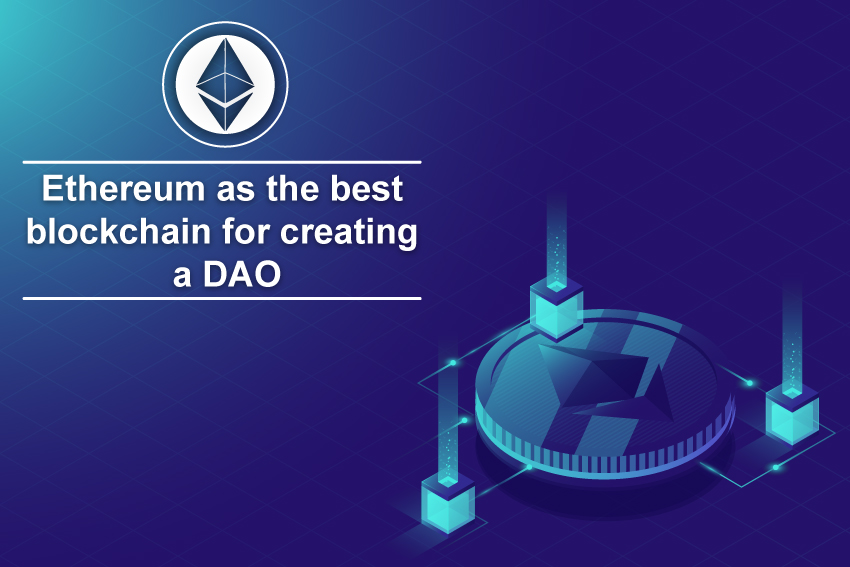
DAOs are a powerful and secure method to collaborate with like-minded people all across the world. Starting a consortium with someone that involves funding and money requires a lot of trust in the people you’re working with.
But it’s hard to trust someone you’ve only ever interacted with on the internet. With DAOs you don’t need to trust anyone else in the group, just the DAO’s code, which is 100% transparent and verifiable by anyone.
Although Ethereum continues to be the blockchain of choice for DAOs, there is a case to be made for alternative chains that may be better suited.
Although Ethereum has been picked by the crypto community and industry as the chain of choice for most blockchain-based decentralized apps, alternative chains may be better suited to handle the burden of decentralized autonomous organizations.
Technical advantages and lower transaction costs have yet to become a compelling reason to use Ethereum Virtual Machine chains. When a network is EVM compatible, it can leverage Ethereum’s security features.
When it comes to the quantity of DAOs, Ethereum (ETH) and its compatible chains have a clear lead over the competition. According to data from blockchain voting platform Snapshot, they hold over 4,200 DAOs and protocols that require governance members.
In comparison, the Solana (SOL) ecosystem has just 140 DAOs, Cardano has around 10 DAOs, and Polkadot Substrate has only eight, acys per tracker Cardano Cube. This isn’t to dismiss the fact that three of the top ten DAOs by the number of choices made in the last seven days are based on Solana, according to DAO tracker.
According to DAO tracker, CEO Eyal Eithcowich in emailed comments to Cointelegraph, Ethereum’s advantage over the rest could be due to simple, yet practical reasons. Ethereum’s supremacy, he claims, stems from the fact that it is “the chain where the DAO movement began.”
“More importantly, (Ethereum’s) ecosystem has the most mature set of tools for launching and administering all aspects of DAOs. This could alter when other chains become more popular.” On the other hand, he cited Ethereum’s high gas fees as a drawback. “But, again, the enabling features and tools in the ecosystem are less robust,” he
“More importantly, (Ethereum’s) ecosystem has the most mature set of tools for launching and administering all aspects of DAOs. This could alter when other chains become more popular.” On the other hand, he cited Ethereum’s high gas fees as a drawback.
“But, again, the enabling features and tools in the ecosystem are less robust,” he said, adding that Solana allows DAOs to make rapid and cheap transactions.
In addition, Solana has been prone to network disruptions on a regular basis.
Saro McKenna, co-founder of the EOSIO-based WAX network Alien Worlds’ non fungible token (NFT) game, told Cointelegraph last week that she believes EOSIO (EOS) is preferable for constructing DAOs.
Ethereum, she believes, is too expensive for voting and was created to be a “general-purpose blockchain” capable of handling a wide range of functions. EOSIO, on the other hand, “was partly developed for the purpose of DAOs,” according to McKenna.
“The EOSIO codebase is incredibly strong, allowing for layered multisig permissions and dynamic collection election methods, both of which are essential for DAOs to work effectively.”
Gas fees have really been a serious issue for Ethereum users, although they were at their lowest point since August last month in March.
Andrew Levine, the CEO of blockchain consulting firm Koinos, has made significant criticisms of EOSIO, which could explain why it is lagging behind Ethereum in terms of adoption. While EOS transactions are almost charge-free, he stated in February that there is an account setup fee.
Ethereum as an Ideal Platform for DAOs
Hence, for a variety of reasons, Ethereum is the ideal platform for DAOs. Primarily organizations may trust Ethereum since its agreement is distributed and well-established. Even its owners cannot change the code of a smart contract after it has gone live.
This enables the DAO to follow the rules that were programmed into it. Smart contracts have the ability to transmit and receive money. The Ethereum community has shown to be more collaborative than competitive, enabling for the rapid development of best practices and support mechanisms.



Comments (No)